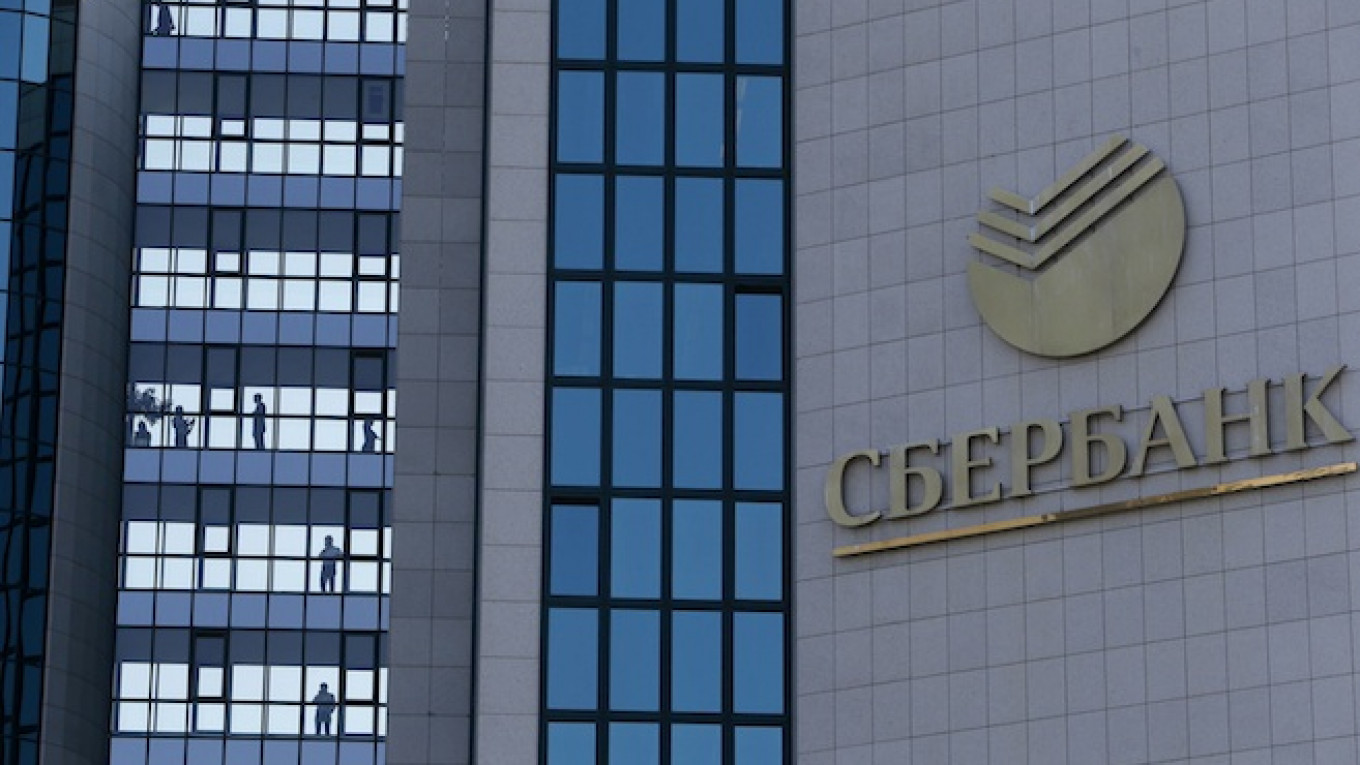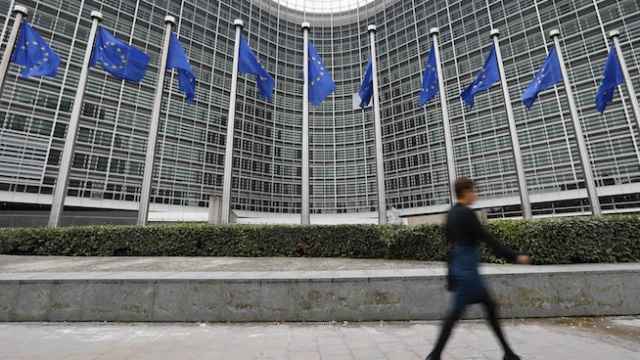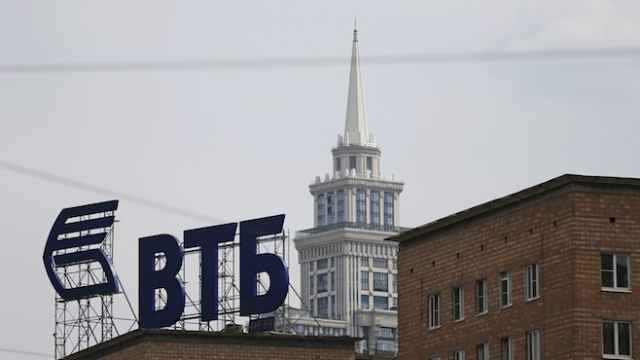They were the toast of Moscow — effortlessly enjoying fat earnings, double-digit lending growth and healthy margins.
Now though, Russia's banks — even major players owned by the state — are hurting from Western sanctions and a weak economy to an extent that the glory days seem a long way off.
Shut out from international markets, with few new deposits while bad loans multiply and funding costs spike, their new environment is a shock for lenders after years of solid business from a population hungry for property and consumer goods and companies on an acquisitions spree.
Western sanctions on key industries — a response to Moscow's role in the Ukraine crisis — have so aggravated an economic downturn that Russia's banks have lower capital ratios now than in the 2008 financial crisis, says Bank of America Merrill Lynch.
"Weak domestic funding, capital adequacy ratios declining and asset quality deterioration will be three most important negative implications for banks," it said in a report.
That said, the sanctions mean Russian clients can no longer tap foreign rivals for loans and this positive angle for the country's banks is borne out by recent data. Central Bank figures show corporate lending rose 10.5 percent from the start of the year to Aug. 1, or 3 percentage points year on year.
The sanctions also prevent Russian banks from raising capital in Western markets, but with government funding supplied instead, Sberbank and VTB reported a rise in corporate loans of 9 and 13 percent respectively in the first six months of the year. Privately-owned banks saw only moderate loan growth or a fall.
Yet while the dominance of the "big two" will grow, analysts say, they will not emerge unscathed from current conditions.
New normal
Russia forecasts its economy will grow by 0.5 percent this year. Experts including German Gref, the chief executive of Sberbank, see it closer to zero. Both are a long way off the 7-8 percent highs seen in the mid-2000s.
Natalia Berezina, an analyst with Uralsib, said even with growth at zero, Sberbank and VTB should be able to beat the market in lending growth thanks to access to state support, but warned they were not immune from the downturn.
"Sooner or later they also will face issues with growth and asset quality," Berezina said.
Sberbank and VTB both sharply increased provisions for bad loans in the first six months of the year to 151 billion rubles ($4 billion) and 93 billion rubles ($2.5 billion) respectively.
For the Russian banking system as a whole, non-performing loans added 40 basis points since the start of the year to stay at 3.9 percent of total loans as of Aug 1.
"It is hard to imagine Sberbank's return-on-equity lower than 15 percent but in the case of prolonged stagnation, which we now see as a pessimistic scenario only, this is also possible," Berezina said.
Sberbank had one of the highest return-on-equity levels in the world of over 20 percent for the last couple of years, double most of its European peers. In the first six months of 2014, that dropped to 18 percent.
UBS recently cut its earnings estimates for Sberbank and VTB for the next couple of years by 15-25 percent and 33-48 percent, respectively, on lower margin expectations and higher cost of risk. "For VTB, we now expect only 2 billion rubles earnings in 2014," it said.
With restricted access to international markets, state banks asking for government support may eventually have to allow it to take a bigger share in exchange.
Private lenders such as billionaire Mikhail Fridman's Alfa Bank or vodka tycoon Rustam Tariko's Russian Standard Bank are in no hurry to use the same option despite being under pressure.
Alfa, which cut its first half net profit by half due to higher loan loss provisions, was looking to raise a subordinated Eurobond this month to boost capital if markets allowed it.
Retail
The economic downturn has particularly hit banks focused on retail lending as consumers steer clear of making big purchases.
Growth in retail loans was 9 percent from the start of the year to Aug. 1, half as much as during the same period last year, Central Bank data shows.
Russian Standard Bank, one of the largest consumer lenders, posted a 14 percent drop in loans in the first six months of the year, which along with high bad loan provisions led to a net loss of 4.8 billion rubles ($130 million).
The entire sector's profit — key for banks to boost capital ratios and cover bad loan provisions — was down 10 percent to 592 billion rubles ($16 billion) in the first eight months of the year.
As a result, active lending knocked 10 basis points off Sberbank's Tier 1 to 10.5 percent as of the end of June, while VTB's Tier 1 fell 1.5 percentage points to 9.4 percent.
Fears of new sanctions and weak economic growth slowed deposits from retail clients — a source of short and medium-term banking liquidity — to 0.9 percent by Aug. 1 versus almost 11 percent a year ago, forcing banks to raise deposit rates.
Sberbank, which accounts for nearly 50 percent of overall retail deposits in Russia, saw zero retail deposits inflow in the first six months of the year. It already warned net interest margin this year will be weaker than in 2013.
The Deposit Insurance Agency — the retail deposit watchdog — cut its full-year growth forecast by a half to 7-9 percent.
"If needed, we will look at all available fundraising options depending on market conditions," VTB, Russia's second largest bank by assets, said by email. Sberbank declined to comment.
A Message from The Moscow Times:
Dear readers,
We are facing unprecedented challenges. Russia's Prosecutor General's Office has designated The Moscow Times as an "undesirable" organization, criminalizing our work and putting our staff at risk of prosecution. This follows our earlier unjust labeling as a "foreign agent."
These actions are direct attempts to silence independent journalism in Russia. The authorities claim our work "discredits the decisions of the Russian leadership." We see things differently: we strive to provide accurate, unbiased reporting on Russia.
We, the journalists of The Moscow Times, refuse to be silenced. But to continue our work, we need your help.
Your support, no matter how small, makes a world of difference. If you can, please support us monthly starting from just $2. It's quick to set up, and every contribution makes a significant impact.
By supporting The Moscow Times, you're defending open, independent journalism in the face of repression. Thank you for standing with us.
Remind me later.






